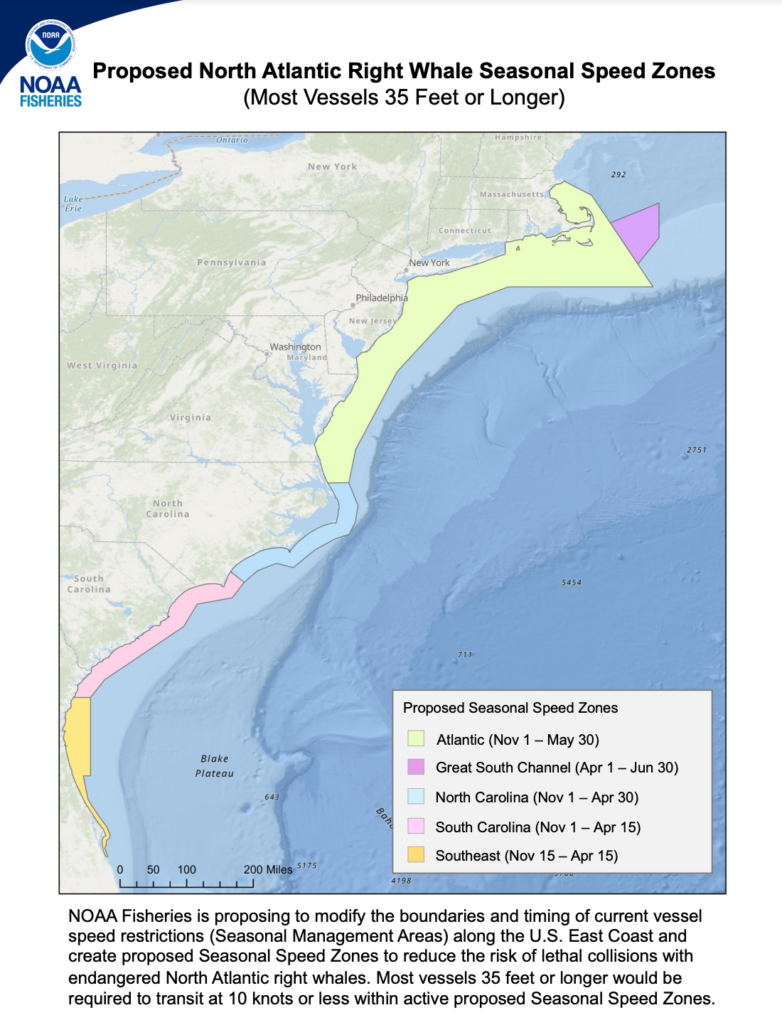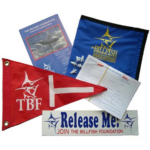 Extreme Vessel Speed Reductions
Extreme Vessel Speed Reductions
Once again, the National Marine Fisheries Service (NMFS) has failed to consider the effects of their decisions on the recreational fishing community. Their recent proposal, which aims to restrict vessel speeds in areas where the North Atlantic Right Whale is known to be present, will be devastating for our community. Just as we experienced with the shark depredation issue earlier in the year, the government has failed to understand how their actions (or inactions) can have negative consequences on ALL users. Let us be clear though: The Billfish Foundation (TBF) understands the importance of protecting the endangered North Atlantic Right Whale. What we do not support is a lack of communication, specifically referring to how the government continually fails to understand how certain proposed rulings threaten fishing and boating. We at TBF seek to find reasonable and scientific solutions that not only protect this endangered species, but also allow our community to survive.
The proposed changes will restrict the speed of vessels > 35 feet in length to 10.5 knots (11.5 mph) in Seasonal Management Areas and in Dynamic Management Areas (DMA) along most of the East Coast. Smaller vessels are encouraged to abide by the same speed limit. These areas, which are currently small distinct calving areas, will now reach as far out as 90 miles offshore and be in place for nearly 7 months.
The recreational boating industry is valued at $170 billion, supports 69,149 jobs and 35,277 businesses. The recreational fishing industry generates $48 billion in retail sales, supports 828,000 jobs, , and contributes $15 billion in states and federal taxes. Its overall impact is valued at $115 billion. The negative impacts on recreational boating and fishing industries will be serious.
Whether it’s trekking to fishing grounds or ports, or docking ships by harbor pilots, or even simple ferry transits and shipping destinations, the amount of commerce that will be affected by this ruling is incalculable. An analysis by Industrial Economics, Incorporated (IEI) estimated “the direct cost impact in transit times will range between $28.3 to 39.4 million a year…. with “commercial shipping industry bearing between 74 to 87 percent of these costs.” How marine commerce can continue in light of these impacts is unknown.
So here we are again. The effectiveness of previous management measures to protect Right Whales from vessel strikes were inadequate, leaving us in the current position of whale vs commerce. Those in power need to better understand all variables within the oceanic equation and how “quick fixes” are rarely the answer. Science and industry representation need to be at the forefront of all decisions, especially when such a proposed ruling has the potential to affect so many entities.
Legislative acts are being reviewed for possible modification.
To stay up to date on all things billfish and highly migratory species, become a member, subscribe to our monthly newsletter, and follow us on social media, @TheBillfishFoundation.






